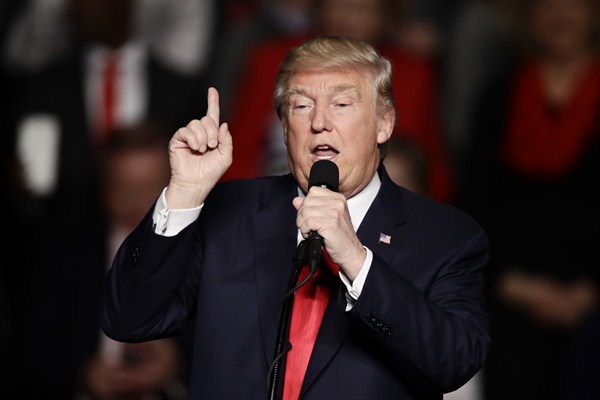The presidency of Donald Trump promises to shake up American politics and break with the past in many ways. In foreign and security policy, one big change that seems likely is a transformation of U.S. policy toward Russia, since President-elect Trump has indicated he will shift the currently adversarial relationship toward one of greater cooperation.
At first glance this seems perplexing given that Republicans have always led the opposition to Russia, whether in containing Soviet communism during the Cold War or attempting to block Russian President Vladimir Putin’s more recent efforts to regain control over the independent nations that were once part of the Soviet Union. But in a brilliant essay for The Atlantic, Peter Beinart explained why Trump and members of his foreign and national security policy team like National Security Adviser-designate Michael Flynn and Secretary of State nominee Rex Tillerson seem to have abandoned the GOP’s hostility toward Putin. American conservatives, Beinart argues, come in two forms. What he calls “ideological conservatives” once opposed the Soviet Union because it was the enemy of freedom; they now dislike Putin for the same reason. So-called cultural conservatives opposed communism because it was atheistic and sought the destruction of the predominantly Christian culture of the West.
After the post-Cold War period, cultural conservatism was pushed to the fringe of the GOP. When violent Islamic extremism emerged as a major threat to the United States after the Sept. 11 attacks, the response to it was framed by ideological conservatives. Led by then-President George W. Bush, they saw Islamic extremism as a new form of revolutionary totalitarianism. But ideological conservatives also opposed Putin’s authoritarianism since it, too, was the enemy of freedom.

